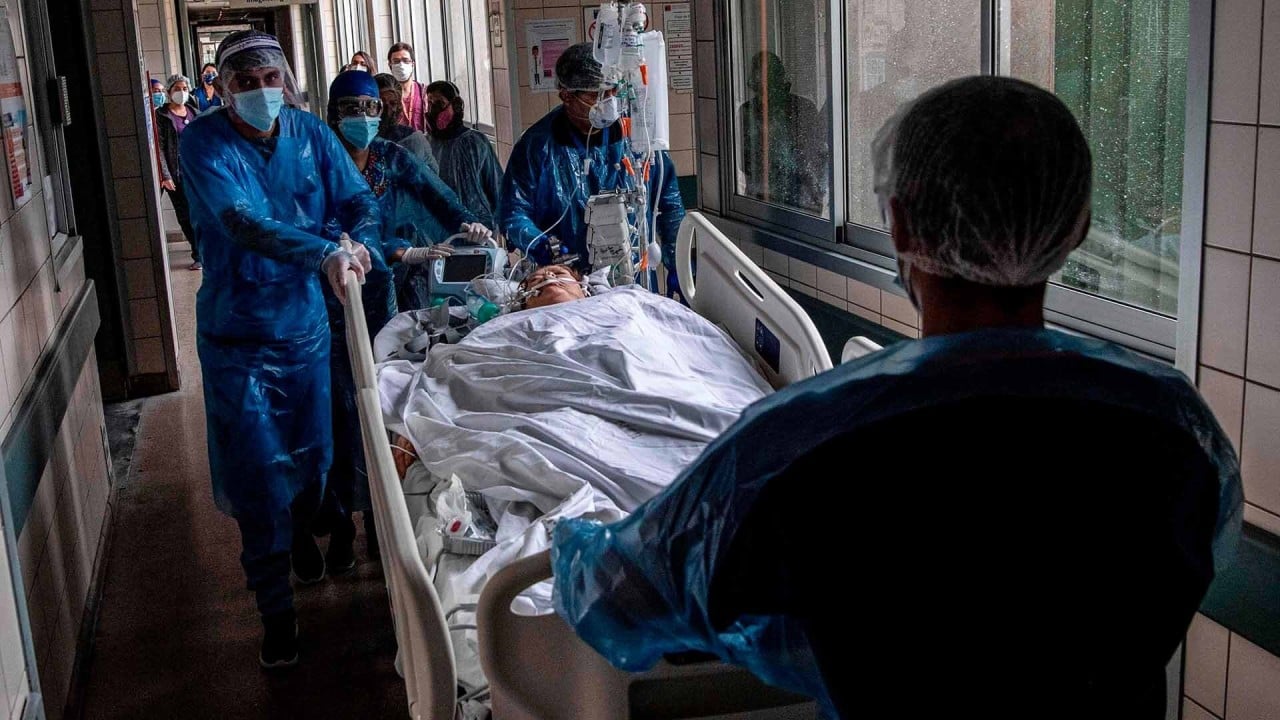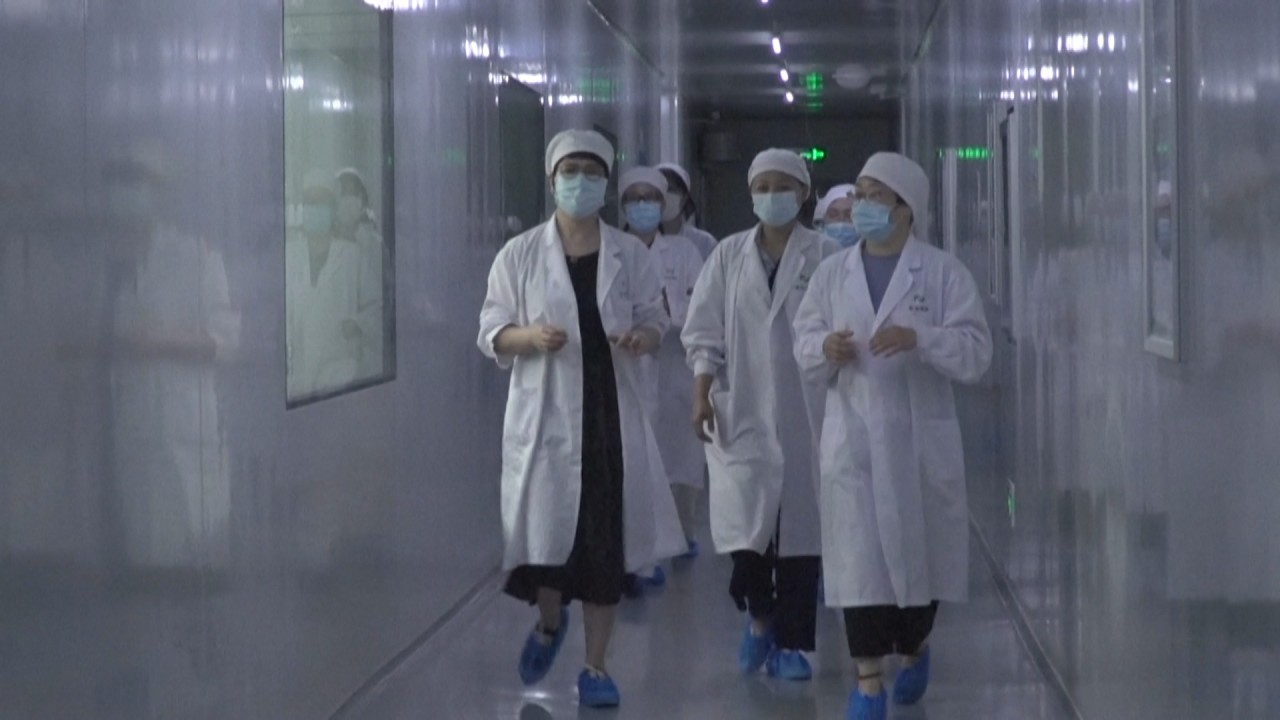
02:45
Global Covid-19 death toll hits 500,000 as coronavirus infections surge past 10 million

The novel coronavirus can live for days on animal skin, according to researchers from the biggest US military bioweapons laboratory.
In Fort Detrick, Maryland, army researchers tested the virus on the surface of various substances, including uncirculated paper currency supplied by the US Secret Service and unused cotton-polyester fabric, according to a non-peer-reviewed paper posted on the preprint site medRxiv.org on Friday.
They found that of the samples, the virus could survive the longest at room temperature on pig skin – up to four days. And it remained stable on the skin in refrigerated temperatures throughout the two-week experiment.
The researchers with the United States Army Medical Research Institute of Infectious Diseases said they were concerned that meat plants could help the coronavirus spread.
“Without an extensive testing and contract tracing programme, transmission around meatpacking plants will likely continue to be an issue,” said the team led by David Harbourt from the base’s biosafety division.
The US study followed a surprise outbreak of the coronavirus in Beijing last month. Most of the 300-plus cases of Covid-19, the disease caused by the pathogen, were linked to a food market selling meat and vegetable products from home and abroad. The outbreak led to a partial lockdown of China’s capital and virus testing for more than 10 million residents.
Chinese health authorities suspected the virus might have entered the market via imported frozen meat, but they had no direct evidence.
Harbourt and his colleagues put Sars-CoV-2, the formal name of the coronavirus, on pig skin and kept the samples at 4 degrees Celsius (39.2 degrees Fahrenheit), the temperature pork is usually kept at in meat packing and processing plants. The viral strains had an average “half-life” – the time it takes for half of the pathogens to die out – of nearly 47 hours. Viable strains remained detectable for as long as two weeks in the chilled conditions.

02:45
Global Covid-19 death toll hits 500,000 as coronavirus infections surge past 10 million
The coronavirus was relatively unstable. It used single-stranded RNA to store genetic information instead of the stronger, double-stranded DNA. But some previous studies found the novel coronavirus could stay longer in the environment than others.
“It is likely that any viral shedding from either symptomatic or asymptomatic workers in the absence of appropriate [personal protective equipment] would remain viable for an extended period of time on the surface of meat products or other surfaces,” the researchers said.
“Even with extensive cleaning, transmission could still occur in the presence of asymptomatic, undiagnosed workers due to both the enhanced stability of the virus and the high viral loads even asymptomatic cases maintain in the nasal passages.”
The Fort Detrick team found that the virus died faster as temperatures rose. Pig skin samples remained positive for four days at room temperature (22 degrees Celsius) and only eight hours in summer heat (37 degrees Celsius).
Pig skin resembles human skin and the effects on the two would likely be similar, according to the researchers. So there was “need for continued hand hygiene practices to minimise … transmission both in the general population as well as workplaces where close contact is common”.

01:57
Coronavirus: Inside a Chinese lab joining global race to find a vaccine
In the same experiment, the army lab also tested uncirculated one- and 20-dollar bills, finding the virus could stay on the surface of 20-dollar notes for up to a day in room temperature – three times longer than on the one-dollar bill. However the difference was not statistically robust due to limited sample size and required further investigation.
“It is possible that differences in ink type, concentration, or both, affected virus stability,” the paper said.
The notes came from the US Secret Service, which protects the president, senior government officials and their families. At least eight secret service agents assigned to Vice-President Mike Pence’s team recently tested positive, according to a CNN report on Friday. The researchers did not reveal more details on the Secret Service’s involvement in the study.
A Chinese government scientist studying the novel coronavirus in Beijing said that the Ford Detrick study could be “closer to real life” than some previous studies that found the virus could survive on non-organic surfaces such as cardboard for days.
Those studies used a high viral load that could be unrealistic in real life settings, said the scientist who requested not to be named due to media policy.
Fort Detrick had been the centre of the US biological weapon and defence programme since the 1940s. It was shut down last year for months due to serious safety violations relating to the disposal of dangerous materials, according to The New York Times.
The incident has prompted conspiracy theories linking the Covid-19 pandemic to the site.
Chinese foreign ministry spokeswoman Hua Chunying tweeted in May: “The US keeps calling for transparency & investigation. Why not open up Fort Detrick & other bio-labs for international review?”